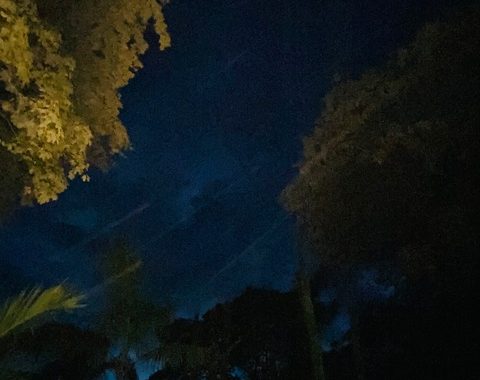Crises envelop us. Pick an area of collective life, and a crisis can be found. Look inwards or talk to friends and family. You’ll find your own body emplaced within one or more crises: inequities, racism, climate change, gender violence, xenophobia.
Notions of crisis, however, carry a particular philosophy of time. They are framed as an interruption to the flow of history. They ignite desires to know the genesis of a crisis and hopes to find its resolution through historical pivot points (Roitman 2013:10-12). The task of defining what those pivot points are and how to make things go back to how they should have been elicits all sorts of struggles over the legitimacy of “solutions” and of those who propose them. But, why go back? What is that previous condition that should have been, that we want to pivot back to, and towards?
What if, rather than punctuating history by analyzing pivotal events, we embraced another, perhaps unusual, disposition. What if instead of seeking technical turning points we began by wondering. What if we embraced wonder as an affective condition for which it is imperative to think carefully about things that up to that point might have been considered totally ordinary, and for that reason self-evident (Rubenstein 2006:12).
Wonder is a concept that works both as noun and verb (Swaab 2012). It is passion and thing. It entails a transitive response that leaves one unsettled because it creates an unexpected puzzlement. As one wonders, one feels the urge to inquire more, to act on the urge to act, while also retaining doubt and even the vulnerability that remaining open to new possibilities entails. Objects of wonder have “questioning and questing” aspects that grab us (Hepburn 1980:27). They demand a relational duration; we cannot quite let go, doubt remains, we need to take leaps and reside in contradictions. Wonder requires dwelling in order to act, in order to change. This is active doubt, charged consideration, electrified pondering. The repulsion the world often deserves requires dwelling on what might be (im)possible. Wondering, but not elsewhere; wondering, here and now.
Understanding the technicality of collective life through wonder entails immersing oneself into what is historically specific about it. Grabbing what is by refusing the coloniality of history and the repressive forces that aim to channel action and thought into pre-determined pathways. Wondering about what is, in order to enact what could be. Wondering about the limits of the possible.
Wonder steps in to take knowing beyond the inert impulse to “master” ideas. Instead, wondering requires a form of sustained engagement, stubbornness, endurance in thinking (Ballestero 2019). It is a methodology, in Katherine McKittrick’s sense; a desire to know that “demands openness and is unsatisfied with questions that result in descriptive-data-induced answers” (McKittrick 2021:5). Wondering is an orientation to knowing that is not satisfied with what is.
Wondering as a technical commitment helps us keep relations between beings, materials, and histories visible and at the forefront. It allows us to dwell in thresholds, political and analytic spaces where ethical distinctions can be entertained without being shut off because they do not count as solutions now, today. Wondering is the method to bring about a future history (Ballestero 2019: 29). By wondering we chisel cracks, we squeeze in and can open space for collective projects that puncture the limits of the possible.
Author: Andrea Ballestero
Reference:
Ballestero, Andrea. 2019. A Future History of Water. Durham, NC: Duke University Press.
Hepburn, Ronald W. 1980. “The Inaugural Address: Wonder.” Proceedings of the Aristotelian Society, Supplementary Volumes:1-23.
McKittrick, Katherine. 2021. Dear Science and Other Stories. Durham, NC: Duke University Press.
Roitman, Janet. 2013. Anti-crisis. Durham, NC: Duke University Press.
Rubenstein, Mary-Jane. 2006. “A certain disavowal: the pathos and politics of wonder.” The Princeton Theological Review 12 (2):11-17.
Swaab, Peter. 2012. “Wonder as a Complex Word.” Romanticism 18 (3):270-280.
